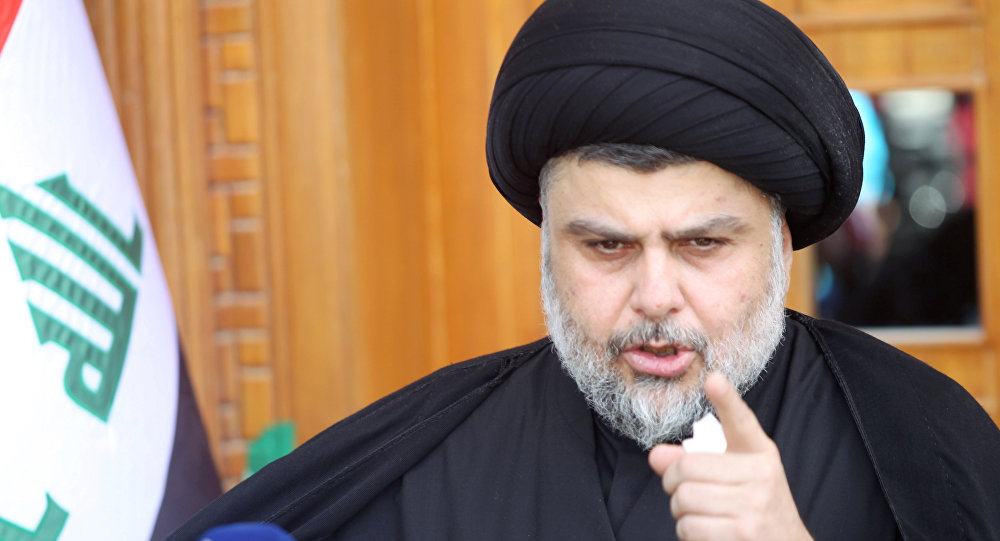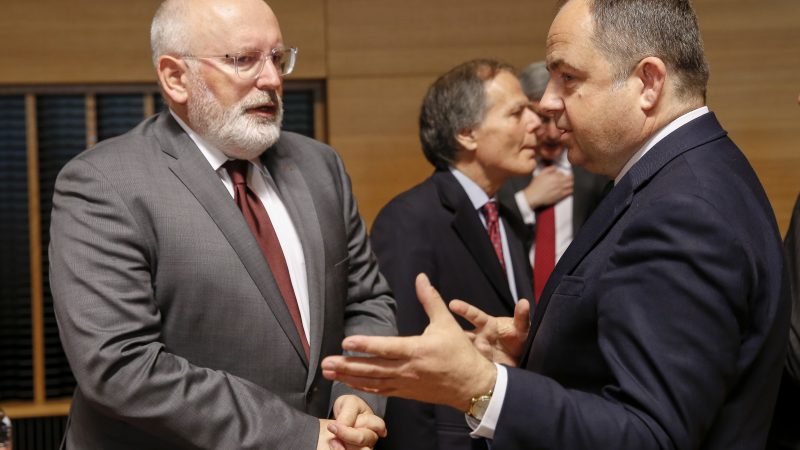EU Observer (26 June 2018)
When driving outside Prague, gigantic national flags adorn Czech motorways at regular intervals.
In a region, central Europe, where euroscepticism is high, this could be interpreted as a show of impassioned nationalism. In fact, it is a loophole Czech advertisers found to maintain billboards after advertising on roadsides was banned by the government.
The paradox is similar with the country's prime minister Andrej Babis.
An outspoken critic of the EU's migration and tax policies, as well as an opponent of joining the euro as long as the eurozone has not been reformed, Babis is often described as a eurosceptic, in the same vein as Hungary's Viktor Orban or Poland's Mateusz Morawiecki - his colleagues in the Visegrad Four group.
But since he took office in December, Babis has been protesting his European good faith and commitment.
"Our interest is a stable, strong and secure Union. And within it, the Czech Republic must act actively and coherently," the Czech leader said last week at the Prague European Summit, an EU affairs conference.
He insisted that the EU was "without any doubt the economic and political framework for the Czech Republic."
Political scientist Vladimir Bartovic told this website, "He is sincere. We have to acknowledge that he is pro-European."
Bartovic, who heads the Europeum think tank in Prague, noted that Babis was "maybe too critical on certain things without offering solutions, [...] he is not aware of the complexities of EU decision-making and [that] sometimes he seems frustrated that his ideas are not getting support."
"But he sees the future of the Czech Republic in the EU, he doesn't want to exit."
'Real actors' in EU?
On Monday (25 June), Babis presented his list of ministers to form a government in coalition with the Social Democratic Party (CSSD).
Eight months after elections in which Babis's ANO party finished first but with no majority, the prime minister is still trying to form a stable government.
Babis's cabinet, which has to be approved by president Milos Zeman, will be a minority government and will depend on support from the Communist Party of Bohemia and Moravia (KSCM).
A vote of confidence is planned on 11 July. Babis lost a first one in January.
In the meantime, the parliament is discussing both the ratification of the so-called Fiscal Compact, a treaty signed by all EU countries except the UK and the Czech Republic in 2012, and the adoption of a law on referendums, which would exclude votes on international commitments, such as EU membership.
Despite its inherent structural weakness, the government will be "the most pro-European in central and eastern Europe," insisted Martina Dlabajova, an MEP from Babis's party.
"We are Europe. We'll be more active than in the past, we'll be real actors in changing things," she told EUobserver, insisting that ANO was part of the liberal pro-EU Alde party.
For Babis, a billionaire turned politician, the EU may be a question of conviction, but it is also a question of interest.
His business, mainly built on agri-food and the chemical industry, is heavily dependent on external trade, especially with Germany, as well as on EU funds.
Unfortunate situation
Babis, who was also finance minister from 2013 to 2017, has focused on tax issues, like a so-called reverse charge mechanism on EU VAT, which both alienated some EU partners and that many consider an "obsession" to help his businesses.
According to Forbes, Babis's fortune is currently worth $4.1bn, compared to $2bn in 2013, the year before he became finance minister.
But the prime minister's business is also a political liability. Last year, he was sacked from the government for not having paid taxes for his companies.
He was also charged with subsidy fraud last October, over a case of EU subsidies allegedly used for a countryside leisure and conference resort, called Stork Nest, which belonged to his Agrofert group. His parliamentary immunity was lifted in January.
No trial is planned at the moment, but the CSSD said it would pull out of the coalition if Babis was convicted.
"This is very unfortunate situation," Bartovic said, adding however this had no impact on the prime minister's position within the EU - and that a bigger problem for his EU partners is that the Czech government still hasn't the confidence of the parliament.
"Three things are important to Babis: not being judged, having a good image abroad and avoiding social protests," noted Michal Pur, editor in chief of the info.cz website.
But the Czech EU policy doesn't depend only on its tycoon prime minister. Babis also has to take into account the mood of the country's president and public opinion.
Double periphery
President Zeman, a former social democrat prime minister, started his first term in 2013 by raising the EU flag over Prague castle, the seat of the presidency. But over time, he has turned more to Moscow and Beijing while supporting anti-migrant movements - the SPD leader Tomio Okamura was at his reelection party in January.
Zeman, whose constitutional powers prevent him from directing the country's domestic or EU policies, has been trying to impose his views on Babis.
After trying in vain to force Babis into a coalition with Okamura's SPD and the Communists, Zeman recently opposed the nomination of Miroslav Poche, a CSSD MEP, to the foreign ministry.
"Zeman has a long term vision, of a presidential regime. Babis has only a short term vision, of amassing as much economic power as possible. He is not interested in having a political vision," said Tomas Prouza, a former EU secretary of state in the previous government, suggesting that Babis would be in the weaker position.
Zeman, who was elected twice with strong support in small towns and the countryside, appears to be more in synch with the voters than pro-EU politicians, in a country where strong alternative media spread disinformation on migrants and the EU.
According to the latest Eurobarometer survey, 56 percent of Czechs "tend not to trust" the EU, while 67 percent say their voice "does not count" in the bloc and 40 percent do not "feel they are an EU citizen."
"Many people feel like they live in a double periphery, as individual and as a country," Prouza pointed out.
"They live outside of Prague, work in factories and go back home, they don't travel much outside of the country. They hear that the Czech Republic is ruled from Brussels and doesn't count much. Both Zeman and Babis appeal to these people, promising they will take care of them," he said.
No positive narrative
While in Hungary and Poland, parties in power and their strong leaders have reshaped institutions and gone in for full confrontation with the EU, the Czech Republic has always appeared as a more moderate - even if lacklustre - member of the Visegrad Group.
Babis, as a pragmatist, "could be a kind of leader who can help to bridge the East-West divide," said MEP Dlabajova.
"He is the first French-speaking [Czech] prime minister," she said, pointing out at good relationships with France's Emmanuel Macron, Belgium's Charles Michel, and Luxembourg's Xavier Bettel. "He also understands very well the strategic relationship with Merkel."
But just as with the roadside adverts covered by the national flag, the Czechs are still looking for how to fulfil their EU membership.
"We have no positive narrative," said Prouza.
"In 1989, we wanted free elections and a return to the West," he argued, referring to the fall of the Czechoslovak communist regime. "We have achieved both and no Czech politician presented a new positive vision for the future."
This article was corrected on 26 June. It stated that the government would depend on support from the Communist party and the far right SPD party. Only Communists said they would support the government.
No comments yet.
- ROMANIA READY FOR ‘CONFLICT’ ON STREETS AS GOVERNMENT FACES NO CONFIDENCE VOTE TODAY The Balkans 27.06.2018
-
 IRAQI CLERIC SADR SAYS KEEN ON FORMING “NATIONAL PARENTAL GOVERNMENT”
Iraq
27.06.2018
IRAQI CLERIC SADR SAYS KEEN ON FORMING “NATIONAL PARENTAL GOVERNMENT”
Iraq
27.06.2018
-
 POLAND’S DEFENCE OF CONTESTED JUDICIAL CHANGES LEAVES EU UNCONVINCED
Europe - EU
27.06.2018
POLAND’S DEFENCE OF CONTESTED JUDICIAL CHANGES LEAVES EU UNCONVINCED
Europe - EU
27.06.2018
- BRAZILIAN JUSTICE MINISTER PAYS VISIT TO GEORGIA The Caucasus and Turkish-Armenian Relations 27.06.2018
- RETURNS CONTINUE WHILE OBSTACLES TO RETURN REMAIN IN IRAQ: IOM [EN/AR] Iraq 27.06.2018
-
25.01.2016
THE ARMENIAN QUESTION - BASIC KNOWLEDGE AND DOCUMENTATION -
12.06.2024
THE TRUTH WILL OUT -
27.03.2023
RADİKAL ERMENİ UNSURLARCA GERÇEKLEŞTİRİLEN MEZALİMLER VE VANDALİZM -
17.03.2023
PATRIOTISM PERVERTED -
23.02.2023
MEN ARE LIKE THAT -
03.02.2023
BAKÜ-TİFLİS-CEYHAN BORU HATTININ YAŞANAN TARİHİ -
16.12.2022
INTERNATIONAL SCHOLARS ON THE EVENTS OF 1915 -
07.12.2022
FAKE PHOTOS AND THE ARMENIAN PROPAGANDA -
07.12.2022
ERMENİ PROPAGANDASI VE SAHTE RESİMLER -
01.01.2022
A Letter From Japan - Strategically Mum: The Silence of the Armenians -
01.01.2022
Japonya'dan Bir Mektup - Stratejik Suskunluk: Ermenilerin Sessizliği -
03.06.2020
Anastas Mikoyan: Confessions of an Armenian Bolshevik -
08.04.2020
Sovyet Sonrası Ukrayna’da Devlet, Toplum ve Siyaset - Değişen Dinamikler, Dönüşen Kimlikler -
12.06.2018
Ermeni Sorunuyla İlgili İngiliz Belgeleri (1912-1923) - British Documents on Armenian Question (1912-1923) -
02.12.2016
Turkish-Russian Academics: A Historical Study on the Caucasus -
01.07.2016
Gürcistan'daki Müslüman Topluluklar: Azınlık Hakları, Kimlik, Siyaset -
10.03.2016
Armenian Diaspora: Diaspora, State and the Imagination of the Republic of Armenia -
24.01.2016
ERMENİ SORUNU - TEMEL BİLGİ VE BELGELER (2. BASKI)
-
AVİM Conference Hall 24.01.2023
CONFERENCE TITLED “HUNGARY’S PERSPECTIVES ON THE TURKIC WORLD"









